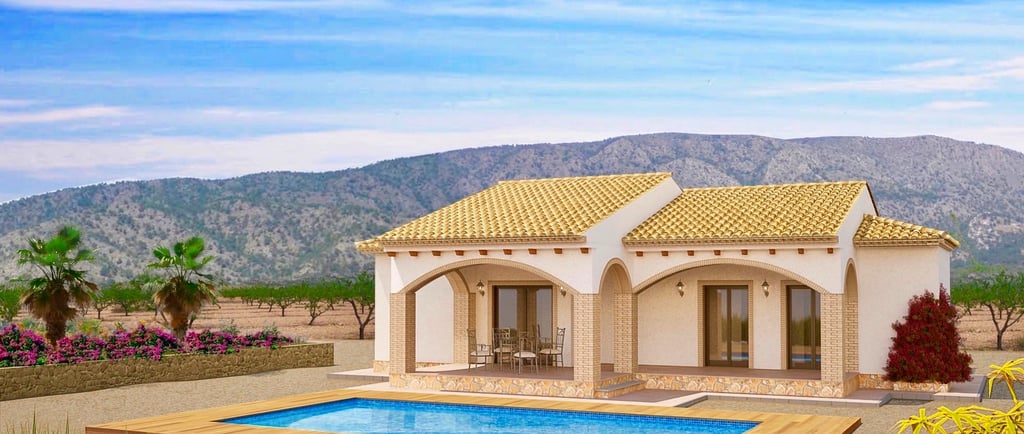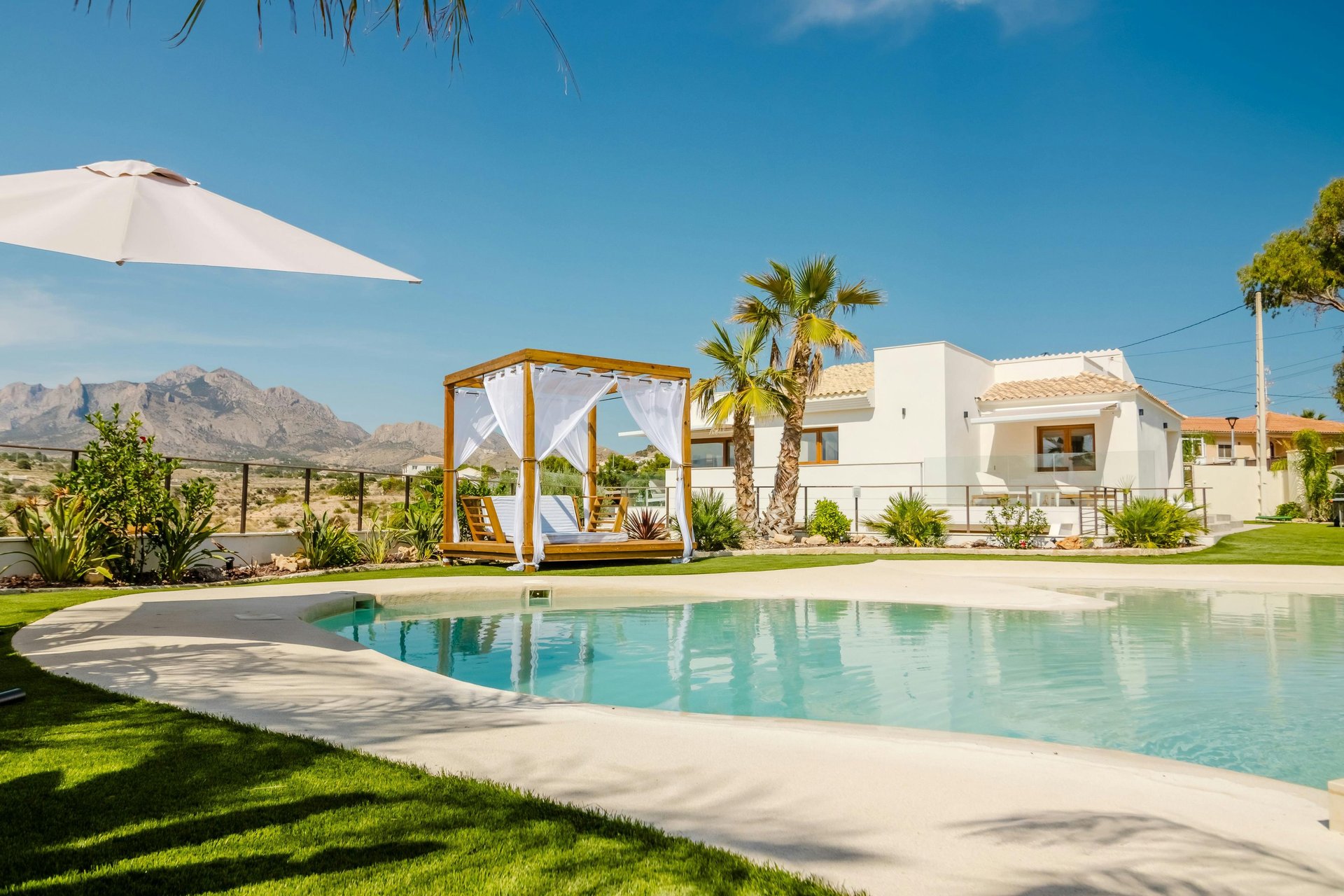Buying Guide in Alicante & Murcia
Purchasing Guide for Buyers Looking to Buy in Spain
Marta Podsiodlo


The Ultimate Guide to Buying Property in Alicante and Murcia
Purchasing property in the regions of Alicante and Murcia offer an exciting opportunity to experience the culture, landscapes, and warm climate of south-eastern Spain. Whether you're looking for a holiday home, a permanent residence, or an investment property, understanding the intricacies of the local real estate market is important. This comprehensive guide walks you through every step of the buying process, from initial considerations to finalizing the purchase.
1. Understanding the Regions: Alicante and Murcia
Alicante is known for its cities, beaches and Spanish culture. The Costa Blanca region, with its crystal-clear waters and sandy shores, is particularly popular among expats and tourists. The city life of Alicante and Benidorm and its coastal towns like Altea and Calpe, offer a variety of lifestyles and property types.
Murcia, on the other hand, is often celebrated for its beautiful countryside, historical sites, and affordable property prices. The Costa Cálida, known for its warm waters and mild climate, includes coastal towns such as La Manga and Mazarrón. Inland, Murcia offers beautiful landscapes with vineyards and olive groves, all in all its a peaceful and relaxed lifestyle.
2. Initial Steps: Defining Your Property Needs and Budget
Determining Your Needs:
- Purpose of Purchase: Are you buying a holiday home, a permanent residence, or an investment property?
- Preferred Location: Consider factors such as proximity to the beach, amenities, public transport, and local culture. Inland real estate offers more property for your money and a more authentic Spanish experience.
- Property Type: Decide whether you prefer a modern apartment, a traditional Spanish villa, a rustic finca, or a larger estate.
Budget Considerations:
- Purchase Price: Set a realistic budget that includes not only the property's cost but also additional expenses.
- Additional Costs: Include taxes, legal fees, notary fees, land registry fees, and potential renovation costs. As a rule of thumb, allocate around 10-15% of the property's purchase price for these extras in Alicante, and 11% in Murcia as the taxes are cheaper when purchasing a home at just 8%.
3. Legal Framework and Professional Assistance
Hiring a Solicitor:
- Importance of Legal Representation: A solicitor specializing in Spanish real estate law is essential. They will ensure the property's legal status is clear, check for any encumbrances or debts, and assist with the necessary documentation.
- NIE Number: As a non-resident, you must obtain an NIE (Número de Identificación de Extranjeros). This identification number is required for all financial and legal transactions in Spain, including property purchases. Your legal representative can help you obtain this in a matter of days, but you can also get one for yourself if you have time.
Understanding the Legal Process:
- Property Due Diligence: Your lawyer will verify that the property has a clear title, check the property's registration, and ensure there are no outstanding debts or charges.
- Community Rules and Fees: If the property is within a community, such as an apartment complex, review the community rules and understand the associated fees.
4. The Financial Aspect: Taxes and Fees
Purchase Taxes:
- ITP (Impuesto de Transmisiones Patrimoniales): For resale properties, this transfer tax is either 8% or 10% of the purchase price, depending on the region.
- IVA (Impuesto sobre el Valor Añadido): For new properties, a VAT of 10% is applicable, along with a 1.5% Stamp Duty.
Other Costs:
- Notary Fees: Notaries authenticate the property transaction. Fees typically range from 600 to 1,200 euros, based on the property's value.
- Land Registry Fees: Registering the property under your name usually costs between 400 and 600 euros.
- Legal Fees: These can vary but generally range around 1-1.5% of the property's purchase price.
- Mortgage Fees: If you're financing your purchase, consider the costs of arranging a mortgage, which may include valuation fees, arrangement fees, and mortgage registration fees.
5. Property Search and Viewing
Engage a Real Estate Agent:
Local Expertise
At Dreaming of Spain Inmobiliaria, we pride ourselves on our deep-rooted knowledge of the Spanish property market. Our team’s understanding of local areas, market trends, and what makes each location special ensures that you'll find properties tailored perfectly to your preferences.
Viewing Properties
Arrange property viewings with us to explore potential homes. We’ll guide you through each property’s condition, location, and unique features, helping you visualize the possibilities.
Making an Offer
Negotiation: When you find a property that captures your interest, our expert team will support you in negotiating the best possible price. In Spain, property prices often have room for negotiation, and we’ll work to secure a favourable deal for you.
Reservation Agreement: To hold a property, a reservation agreement may be required along with a deposit (typically between 6,000 and 10,000 euros). This deposit ensures the property remains available while we complete the necessary legal checks.
6. The Purchase Process: Contracts and Closing
Private Purchase Contract (Contrato de Arras):
- Signing the Contract: This binding contract outlines the terms and conditions of the sale, including the purchase price and the deadline for final payment. At this stage, a deposit, usually 10% of the purchase price, is paid.
- Buyer’s Obligations: The contract will detail the consequences of withdrawing from the sale, usually resulting in the loss of the deposit.
Finalizing the Purchase:
- Signing the Escritura: The final deed of sale is signed before a notary. The remaining balance of the purchase price, along with any additional taxes and fees, is paid at this time.
- Property Registration: The notary will then facilitate the registration of the property in your name at the Land Registry.
7. Post-Purchase Considerations
Utilities and Services:
- Utility Transfers: Ensure utilities (electricity, water, gas) are transferred into your name.
- Community Fees: Pay any applicable community fees if the property is part of a community.
Ongoing Responsibilities:
- Property Maintenance: Consider the costs and logistics of maintaining your new property, especially if it's a holiday home.
- Insurance: It's advisable to get property insurance to protect your investment.
Integration and Enjoyment:
- Community Integration: Engage with your new community, explore the local culture, and enjoy the amenities and activities that attracted you to the area.
This particular image does not belong to Dreaming of Spain Inmobiliaria

Specializing in Luxury Residential and Country Properties in Alicante and Murcia.
Contact
© 2026. All rights reserved.


